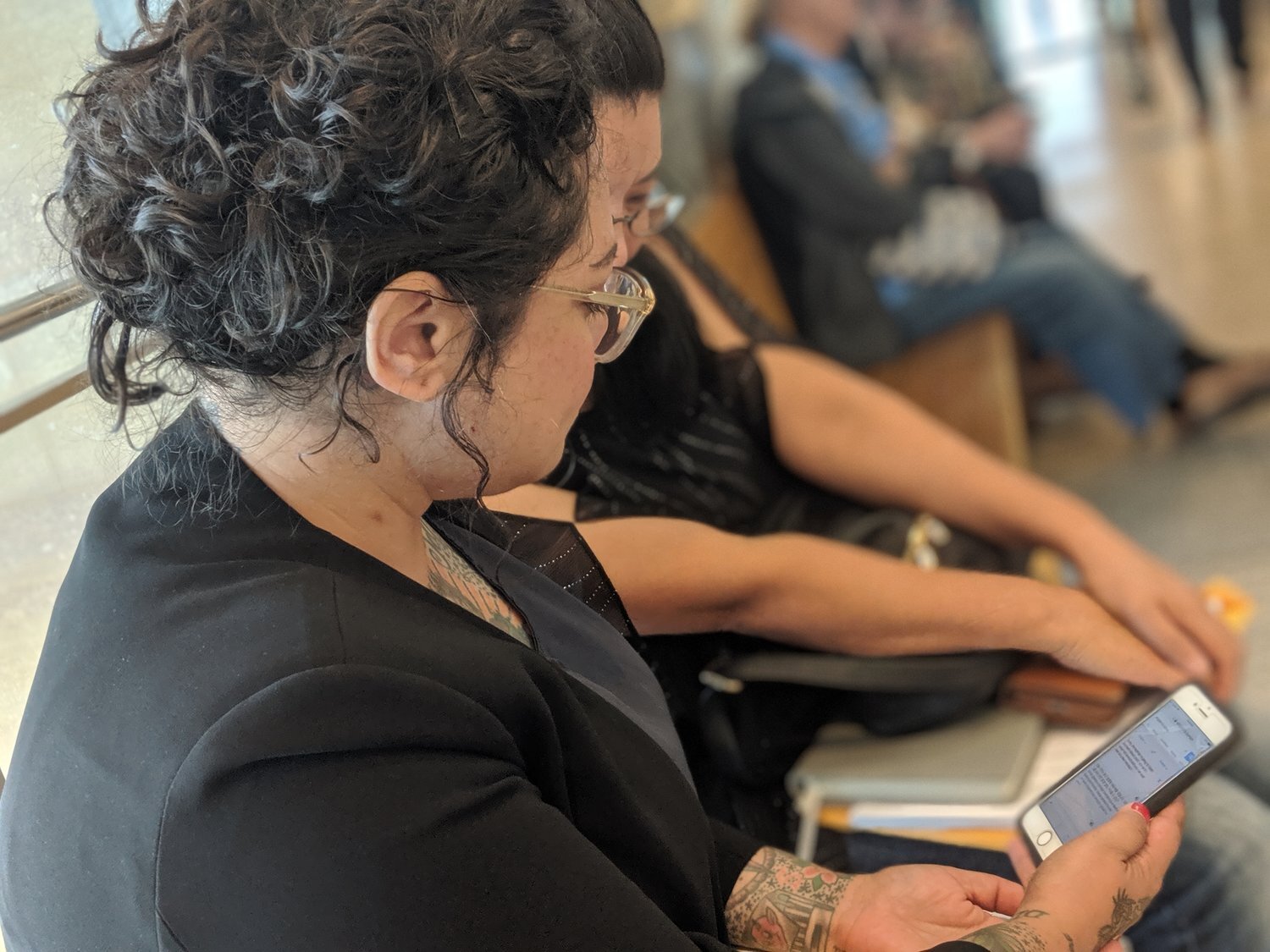Chief Judge celebrates court translators during pandemic
/Court interpreters have risen to the challenges of the pandemic, Chief Judge Janet DiFiore said Monday. In this file photo, Queens Legal Services attorney Catherine Barreda uses an online translator tool to interpret court proceedings for a client in 2019. Eagle file photo by Phineas Rueckert
By Rachel Vick
COVID-fueled court shutdowns have impeded many aspects of New York’s legal system, but the shift to remote proceedings has fostered greater language access for respondents — a small “silver lining” of the pandemic, the state’s top judge said Monday.
During a weekly address, New York Chief Judge Janet Difiore commended the work of interpreters who have allowed respondents to engage with the legal justice system in spite of the pandemic. The shift to virtual proceedings has actually made language access easier because interpreters can translate for respondents across counties, she said.
“Court interpreters previously limited to providing in-person services in a specific court or county are now available to provide language access in any court anywhere in the state — wherever their services are needed,” DiFiore said.
“Transitioning to full-time virtual operations enabled our interpreters, judges and court staff to become much more proficient and comfortable with remote interpreting,” she added. “A development that will certainly improve access and efficiency well into the future.”
Nearly 300 translators worked more than 21,000 court proceedings in 2020, DiFiore said.
In the World’s Borough, where more languages are spoken per capita than anywhere in the world, translation services are an essential part of accessing information for hundreds of thousands of people, particularly when it comes to court proceedings.
The Office of Language Access Translated the “Residential Hardship Declaration Eviction and Foreclosure Notice” into 19 languages — including Spanish, Arabic, Haitian Creole, Korean, Mandarin, Punjabi and Mandinka — and created a “Limited English Proficiency Dashboard” to keep track of how many court attendees require language access services.
The dashboard will be published later this year.
“Thank you to all of our dedicated language interpreters across the state, skilled professionals who have been compelled to make significant adjustments in their work, switching from simultaneous interpreting to the less preferred consecutive mode, but they have surmounted every challenge with patience and understanding, and most of all, with great effectiveness.” DiFiore said.




